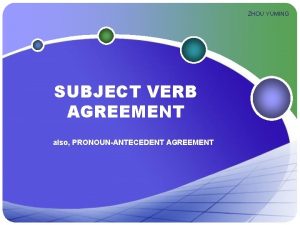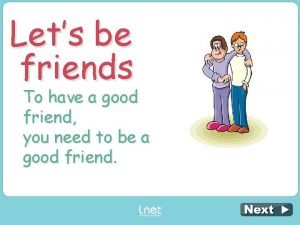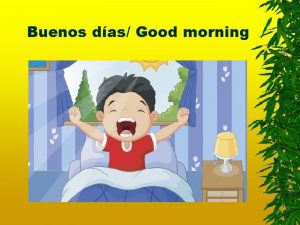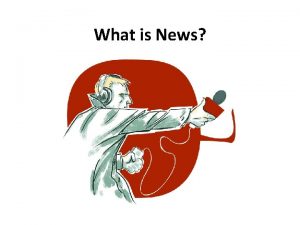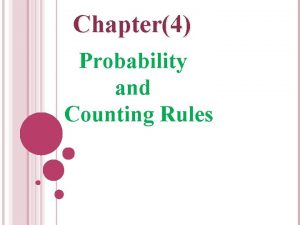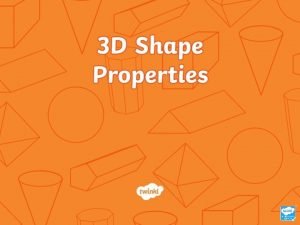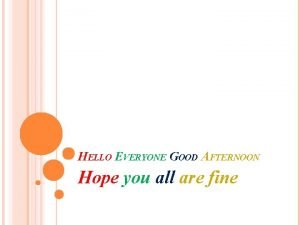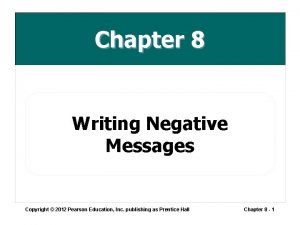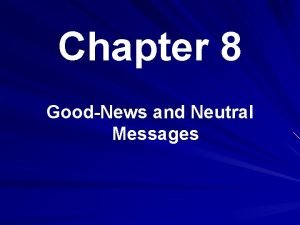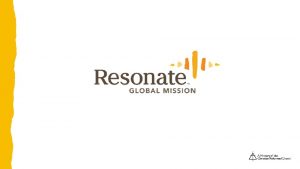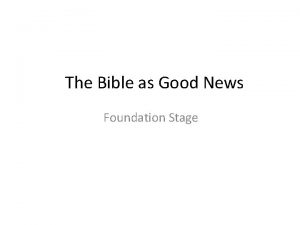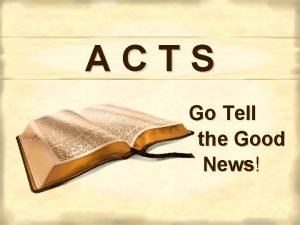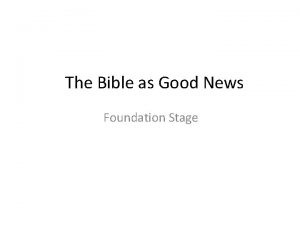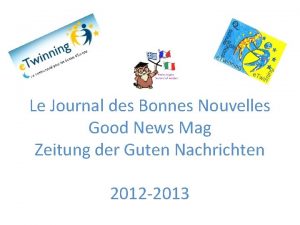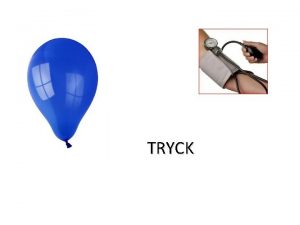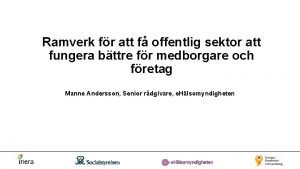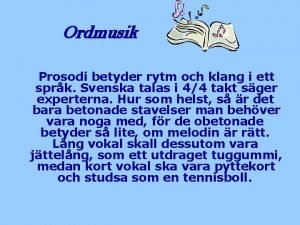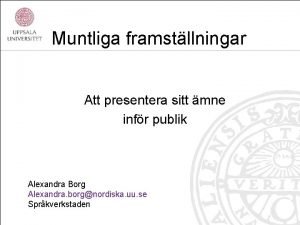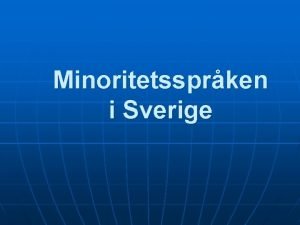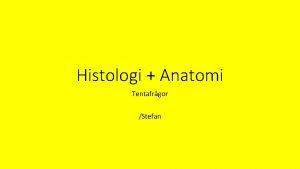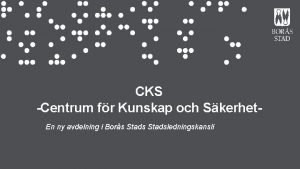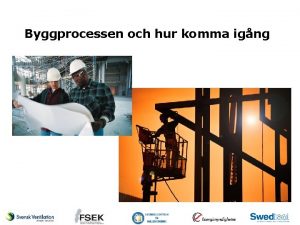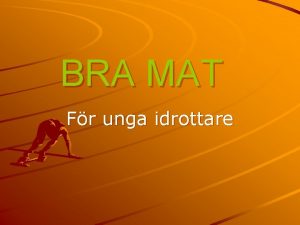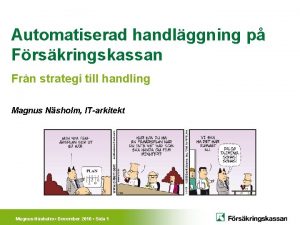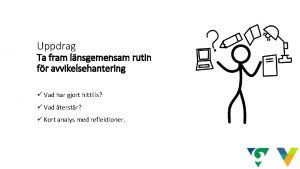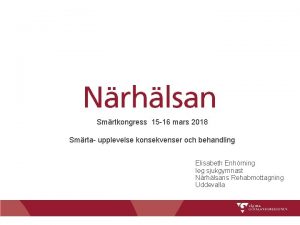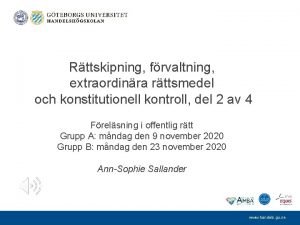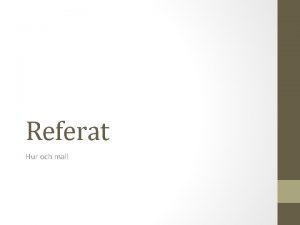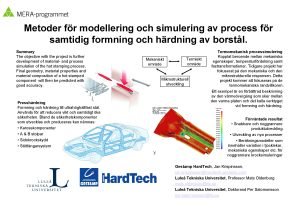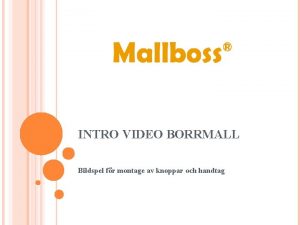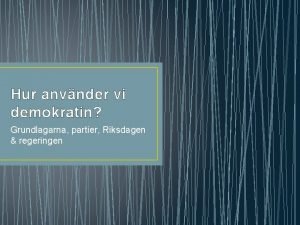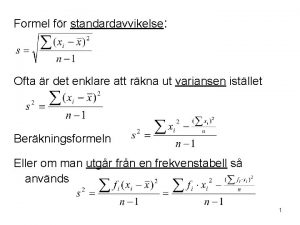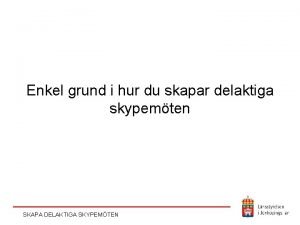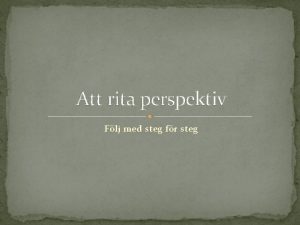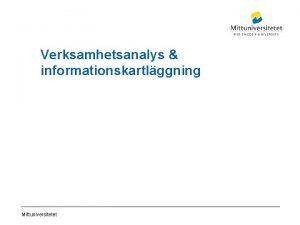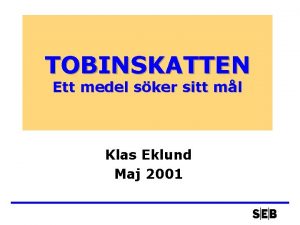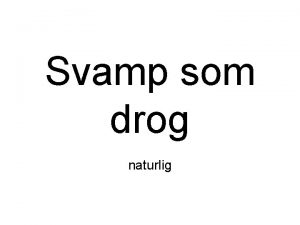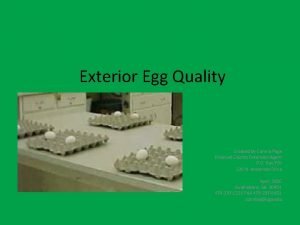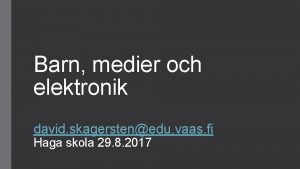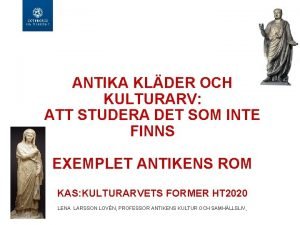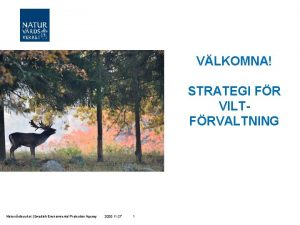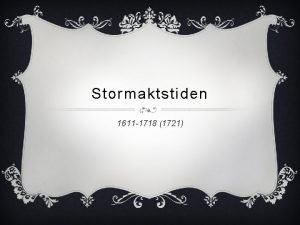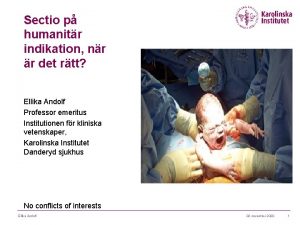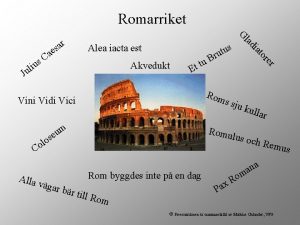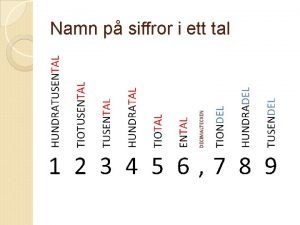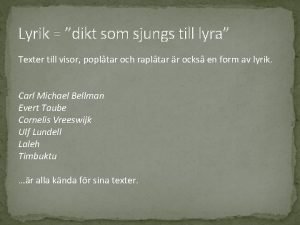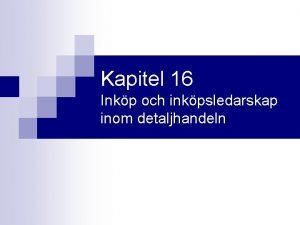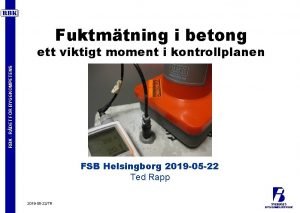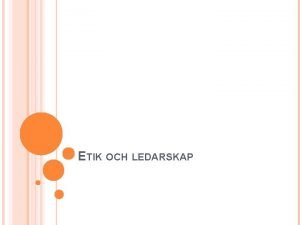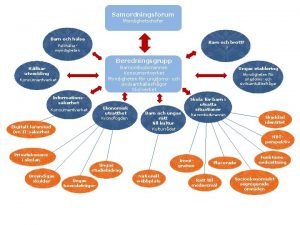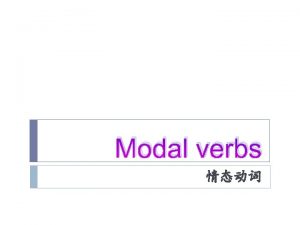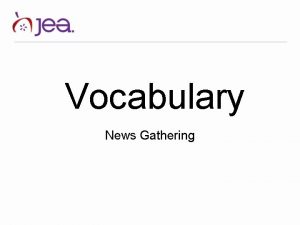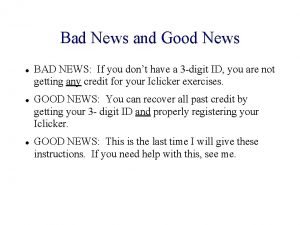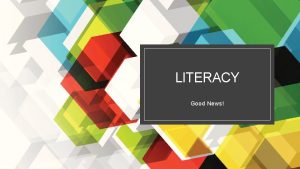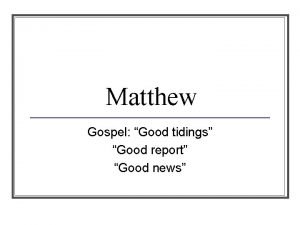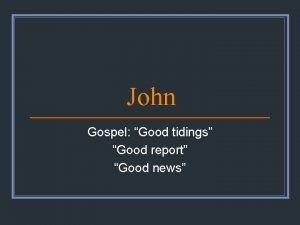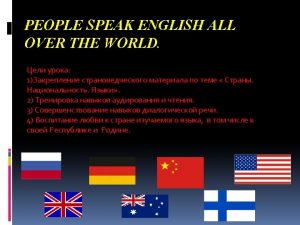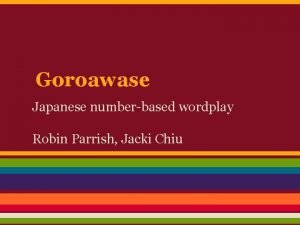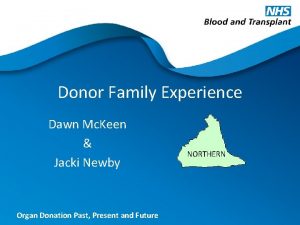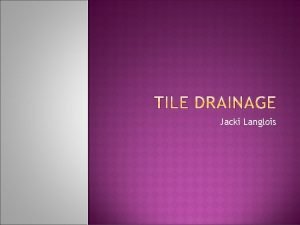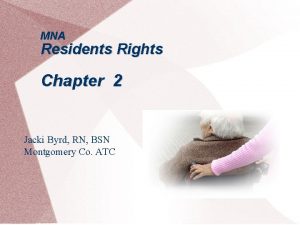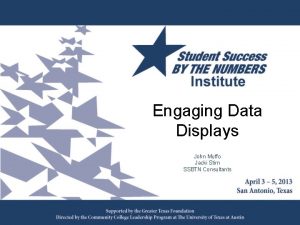JackI have good news for you RoseWhat JackThe




















































































- Slides: 84



Jack—I have good news for you! Rose—What? Jack—The Education Department has carried out rules to reduce students' too much study load. Rose—Really? If so, I don’t have to stay up late to do so much homework and my mom may allow me to play computer games. Jack—The best thing I think is that I can have more spare time to take exercise after class. Rose—Sure. By the way, who is your favorite sports star? Jack—Liu Xiang, I should say. Rose—Tell me something about him. Jack—Well, maybe I can show you some photos.

一. We use modal verbs to talk about: 1. Ability (能力) 2. Obligation (义务) 3. Certainty (可能性) 4. Permission (允许)

二. We also use modal verbs to: 5. Make requests(提出请求) 6. Make suggestions(提出建 议) 7. Make offers(提供帮助) 8. Give advice(提出意见)

1. Ability (能力): Liu Xiang can run the 110 m hurdle race within 13 seconds.

can/could: 1. can 一般表示与生俱来的能力或 者一种客观可能性, 还可以表示请 求和允许 。 Man can not live without air. Learning English _____ can be difficult. Can _______ I use your bike?

can/could: 2. 在疑问句中,用could可表示请 求,语气较委婉。 He asks if he could ____ smoke here. — Could ____I have the television on? can/may — Yes, you _____. / No, you _____ can’t/I’m afraid not

can/could: 3. 表示惊异、怀疑、不相信的态度。(主 要用在否定句、疑问句或惊叹句中) Can this be true? He’s such a nice person that can’t commit the crime. he ______ How can you be so careless! 你怎么会如此地粗心!



can/be able to区别 : 1. A big fire broke out in ABC hotel yesterday. Luckily, everyone was able to run out of _____ the building. can _____ 2. She speak both English and French.

2. Obligation (义务): I’m so tired! I have to do the training for at least 10 hours a day! Although Liu Xiang is so gifted in hurdle race… …yet he must work hard to win the gold medal.

necessity advisability ought to/should have to must My mother brings me up and takes good care of me, so when she is old, I ___ look after her in return. A. can B. may C. have to D. must

3. Certainty (可能性) : Although the chance of winning a medal is small, I’ll try my best! Shi Dongpeng might win a medal at the Olympic Games.

very uncertain might may could (can) should almost certain ought to will must 1. He _____ be at home. A. may B. might C. must 2. He _____ be at home, for he just called me from his home 15 seconds ago. A. may B. might C. must

must 1. must 表示肯定的猜测,译为“一定”,不 能用于否定句或疑问句。 This must be your pen. He must be doing his homework now. He must have arrived already.


—They___ be doing the experiment in the lab. —Why? —Because the lights are still burning. A. could C. must B. can D. would

4. Permission (允许): May I eat KFC if I win the gold medal?

may/might: 1. 表示许可。表示请求、允许时, might比may的语气更委婉一些。 — Might/May I use your computer? — Yes, you can. /No, you can’t.

may/might: 2. 用于祈使句中表示祝愿。 May you be happy all your life. May you succeed. 祝你成功! 3. 表示推测、可能(只用于肯定句, 疑问句则要用can或could)。 He may be very busy now.

5. Making requests (提出要求): formal informal will can could I don’t know how to use this equipment! Can you help me with my would

6. Making suggestions (提出建议 ): It’s too hot to take exercise in the afternoon. Shall we do the training in the morning?

shall : 1. Shall用于第一、第三人称疑问 句中,表示说话人征求对方的意 见、向对方请示或提供帮助 。 1. Shall we begin our lesson? 2. When shall he be allowed to leave hospital? 3. Shall I carry this bag for you?

shall : 2. Shall用于第二、第三人称,表 示说话人给对方命令、警告、允 诺或威胁。 You shall fail if you don‘t work harder. 警告 He shall be punished according to the rule. 威胁 允诺 He shall have the book when I finish it. 等我读完这本书,就会给他的。

shall : 3. Shall用于第三人称,表示在条 约,规定,法令等文件中表示义 务或规定,意为“应”、“必须”。 The school rules state that no child shall be allowed out of the school during the day, unless accompanied by an adult.

7. Making offers (提供帮助): Mom, my dirty clothes have been piled up! I don’t have time…… Don’t worry, dear. I will wash them right away.

will/would: 1. 表示请求、建议等,would比 will委婉客气。 Would you like sth sentence pattern Would you please do … Would you mind doing… Would rather…

will/would: 2. 表示意志、愿望和决心。 I will never do that again.

will/would: 3. 可表示经常性、习惯性、倾向 性。翻译为“经常、惯于、总是”。 The old man would _______have a smoke under a big tree every afternoon after he finished his farm work.

will/would: Question: Is this sentence correct? Why? I will go to the park with you tomorrow if you will offer me lunch. 情态动词 表示 “意愿”

8. Giving advice (提出意见 ): How delicious !!! You should not/ought not to eat so much before running.

should: 1. Should表示劝告、建议、命令, 其同义词是ought to;在疑问句中, 通常用should代替ought…to。 Should I open the window? We should learn from each 我们应当要相互学习。 other.

should: 2. 情态动词should用于第一人称 时可以表示说话人的一种谦逊、 客气、委婉的语气。 Rose—Sure. By the way, who is your idol? Jack—Liu Xiang, I should say. I should advise you not to do that again.


should: 4. should 表示猜测时,一般指按经验或逻辑 判断,翻译成“照说应该,估计,想必” • ---When can I come for the photos ? I need them tomorrow afternoon. ---They _____be ready by 12 : 00. A. can B. should C. might D. need




Practice 1. With so much work on hand, you ____to see the game last night. A. mustn’t go B. could have gone C. shouldn’t go D. shouldn’t have gone 2. There was plenty of time. She ____. A. mustn’t have hurried C. must not hurry B. couldn’t have hurried D. needn’t have hurried

Practice 3. –I saw Mary in the library yesterday. --You_____ her. She is still abroad. A. mustn’t see B. can’t have seen C. mustn’t have seen D. couldn’t see 4. Aunt Mary______the train; otherwise she would have arrived here by now. A. must have missed B. should have missed C. had missed D. might miss


How can we deal with exercises concerning modal verbs? Functions & usage of modal verbs Language context (上下文、 语境)

高考考题: B 1. I thought you _____like something to read, so I have brought you some books. A. may B. might C. would D 2. Where is my pen? I ____it. A. might lose D. must B. would have lost C. should have lost D. must have lost B 3. I didn’t hear the phone. I ___asleep A. must be B. must have been C. should be D. should have been

4. ---There were already five people in the car, but they managed to take me as well. D comfortable journey ----It ____a A. can’t be B. shouldn’t be C. mustn’t have been D. couldn’t have been C 5. It’s nearly seven o’clock. Jack ___be here at any moment. A. must B. need C. should D. could

A 1. A computer ______ think for itself; it must be told what to do. A. can’t B. couldn’t C. may not D. might not 2. The fire spread through the hotel very quickly D get out. but everyone ______ A. had to B. would C. could D. was able to

D 3. They will ______ run this machine on their own in three months. A. can B. could C. may D. be able to A seat 2, 000 people. 4. That big cinema ______ A. can B. should C. ought to D. is able to

5. — Could I borrow your dictionary? C — Yes, of course you _______. A. might B. will C. can D. should 6. — Might I watch TV after supper? A — Yes, you ____. A. may B. must C. might D. could

C return the book now. You can 7. You ______ keep it till next week if you like. A. can’t B. mustn’t C. needn’t D. may not B play with the knife, you 8. Johnny, you ______ hurt yourself. A. won’t ; can’t B. mustn’t ; may C. shouldn’t ; must D. can’t ; shouldn’t

9. --Will you stay for lunch? B --Sorry, _____. My brother is coming to see me. A. I mustn’t C. I needn’t B. I can’t D. I won’t 10. --May I pick a flower in the garden? C -- ____. A. No, you needn’t B. Not, please. C. No, you mustn’t D. No, you won’t

情态动词考题: 1. Put on more clothes. You C with only a shirt on. A. can B. could be feel C. must D. would 2. "Must I drive to his house and pick up the children? " "No, C. " A. you shouldn't C. you needn't B. you might not D. you mustn't

3. We didn't see Tom at the meeting yesterday. He B it. A. mustn't have attended B. cannot have attended C. needn't have attended D. would have not attended 4. We A play chess than bridge. Som don't know how to play bridge. A. had better C. would rather B. would better D. had rather

5. There is someone knocking at the door. it be Tom? A. can B. must A C. should D. ought to 6. Two years ago, my husband bought me a bicycle. If you live in town, it is often faster than a car and you D A. must not C. should not worry about parking. B. may not D. don't have to

1. –May I sit beside you, sir? --- No, you ______. My girlfriend is coming soon. A. can’t B. mustn’t C. needn’t D. shouldn’t 2. -- _____ I speak to Mary, please? --Sorry, she____ come to the phone because she isn’t in. A. Might; won’t B. Can’t; mustn’t C. May; can’t D. Couldn’t; shouldn’t

1. --Is John coming by train? --He should, but he ____ not. He likes driving his car. (2002高考题) A. must B. can C. need D. may 2. It has been announced that candidates(候选人) ____ remain in their seats until all the papers have been collected. (2002上海高考题) A. can B. will C. may D. shall 3. --I heard they went skiing in the mountains last winter. (2002北京高考题) --It ____ true because there was little snow there. A. may not be B. won’t be C. couldn’t be D. mustn’t be

3. --- I want to know if I _ smoke here. --- No, you____. Could you see the sign “NO SMOKING” there? A. can; needn’t B. must; can’t C. shall; won’t D. may; mustn’t 4. My wife never remembers my telephone number. She always ____ look it up. A. must B. should C. would D. has to

5. --- ____ you pass me the English magazine, please? --- Sure. Here you are. A. Could B. Need C. Must D. Might 6. ---Must I go to work with you? --- No, you_____. Linda ______ go with me. A. mustn’t; can B. can’t; has to D needn’t; may C. daren’t; should D.

7. --- __ I tell Mary the test results? --- No, you____. She’s already got the score. A. Will; won’t B. B Shall; needn’t C. May; mustn’t D. Can; don’t 8. You ____ be careful when crossing here. The traffic lights aren’t working. B ought to A. might B. C. could D. may

9. ---Could I borrow your bicycle? --- Yes, of course you_____. A. will B. should C C. can D. need 10. Joan_____ come with us this afternoon, but she isn’t very sure yet. A. can B B. may C. must D. will

11. I _____ ask you the question because I think I _____ be wrong. A. daren’t; must B. mustn’t; can C. needn’t; may D. can’t; should 12. It’s nearly eight o’clock. Mike _____ be here at any moment. A. need B. has to C. should D. can

13. The fire spread through the building very quickly but everyone ____ get out. A. had to B. would D was able to C. could D. 14. ---What do you think of this answer? ---I don’t think it ____ be right. D might A. should B.

15. --- Is John coming by train? --- He should, but he ___. He likes driving his car. A. can’t B. needn’t C C. may not D. mustn’t 16. He doesn’t have to work tomorrow, but you have got to, ____ you? B A. don’t B. haven’t C. haven’t got D. can’t

17. You_____ wake me up when I fall asleep, ______ you? A. haven’t better; have B. would not rather; would C. had better not; should D. had not better; must

18. ---Why! I couldn’t get you on the phone this morning. --- We _____ tennis in the yard when you phone me. A. could be playing B. must be playing C. must have been playing D. should have played

19. --- We didn’t see him at the lecture. --- Neither did anybody else. He _____ it. A. may not have attended B. mustn’t attend C. can’t have attended D. couldn’t attend

20. ---I came here by taxi and the driver charged me 50 yuan. ---Really? You _____ have come by bus. A. could B. must C. may D. should

21. --- Do you still remember when we went to the Great Wall? --- I can’t remember it well, but _____ it have been sometime last May? A. should B. must C. could D. would

22. ---I wonder why Mr. Lin didn’t come to work. --- He____ have been ill. A. needn’t B. should C. might D. can

23. ---No one passed the mathematics examination today. ---I guess we ____ the exercise last night. A. could review B. should review C. might review D. should have reviewed

24. She_____ the hospital so soon, for she hasn’t yet recovered. A. wouldn’t have left B. shouldn’t have left C. needn’t leave D. hadn’t left

25. Why didn’t you tell me there was no meeting today? I ______ all the way here through the heavy snow. A. needn’t have driven B. can’t have driven C. must have driven D. shouldn’t have driven.

26. The book is neither yours nor mine. Whose ______ it be? A. must B. may C. should D. can 27. It is surprising that he ____ have been so foolish. A. must B. could C. should D. can

28. It must have rained last night, _____ it? A. mustn’t B. can’t C. hasn’t D. didn’t 29. ---Will you stay for lunch? --- Sorry, I _____. My brother is coming to see me. A. mustn’t B. can’t C. needn’t D. won’t

30. --- Are you coming to Jeff’s party? --- I’m not sure. I ____ go to the concert instead. A. must B. would C. should D. might. 31. Michael ____ be a policeman, for he’s much too short. A. needn’t B. can’t √

32. Mr Bush is on time for everything. How ___ it be that he was late for the ceremony? √ A. can B. should C. may D. must

33. –I stayed at a hotel while in New York? -- Oh did you? You ____ with Barbara. A. could have stayed B. could stay C. must have stayed D. would stay √

34. If I ___go with you, I would feel very glad. √ A. can B. could C. should D. may 35. There was a lot of fun at yesterday’s party. You___ come, but why didn’t you? A. must have C. need have B. should √D. ought to have

36. —When can I come for the photos? I need them tomorrow afternoon. √ A. can B. should C. might D. need --They ___ be ready by 12: 00. 37. I didn’t hear the phone. I ____ asleep. A. must be √B. must have been

38. I ___ do all the difficult work for you. √A. haven’t got to B. not have got to C. have got not to D. have got to not 39. Sorry I’m late. I ___ have turned off the alarm clock and gone back to sleep again. √A. might B. should C. can D. will

40. If I had time, I ____ go with you. A. can B. will √ C. may D. might

Review the usage of modal verbs and finish the exercises in Section 2.


谢谢!Thanks!
 Jacki morie
Jacki morie Nothing compares to your embrace
Nothing compares to your embrace All that glitters ______ not gold
All that glitters ______ not gold Let's be a good friends
Let's be a good friends You are good and your love endures forever
You are good and your love endures forever Hello friend! i am glad to see you!
Hello friend! i am glad to see you! You are not rejected
You are not rejected Good thoughts good words good actions
Good thoughts good words good actions Hello, good evening
Hello, good evening Good afternoon teacher
Good afternoon teacher Good afternoon buenas tardes
Good afternoon buenas tardes Soft news
Soft news Chapter 4 probability and counting rules answer key
Chapter 4 probability and counting rules answer key This has 6 faces, 12 edges and 8 vertices.
This has 6 faces, 12 edges and 8 vertices. Difference between formal and informal communication
Difference between formal and informal communication Using the direct approach for negative messages
Using the direct approach for negative messages Goodwill messages
Goodwill messages What is neutral message
What is neutral message Sharing good news
Sharing good news Good news foundation
Good news foundation Go and tell the good news
Go and tell the good news Good news foundation
Good news foundation Good news journal
Good news journal News that have passive voice
News that have passive voice Iso 22301 utbildning
Iso 22301 utbildning Novell typiska drag
Novell typiska drag Nationell inriktning för artificiell intelligens
Nationell inriktning för artificiell intelligens Ekologiskt fotavtryck
Ekologiskt fotavtryck Varför kallas perioden 1918-1939 för mellankrigstiden
Varför kallas perioden 1918-1939 för mellankrigstiden En lathund för arbete med kontinuitetshantering
En lathund för arbete med kontinuitetshantering Särskild löneskatt för pensionskostnader
Särskild löneskatt för pensionskostnader Personlig tidbok fylla i
Personlig tidbok fylla i Sura för anatom
Sura för anatom Förklara densitet för barn
Förklara densitet för barn Datorkunskap för nybörjare
Datorkunskap för nybörjare Boverket ka
Boverket ka Att skriva en debattartikel
Att skriva en debattartikel Magnetsjukhus
Magnetsjukhus Nyckelkompetenser för livslångt lärande
Nyckelkompetenser för livslångt lärande Påbyggnader för flakfordon
Påbyggnader för flakfordon Lufttryck formel
Lufttryck formel Svenskt ramverk för digital samverkan
Svenskt ramverk för digital samverkan Jag har gått inunder stjärnor text
Jag har gått inunder stjärnor text Presentera för publik crossboss
Presentera för publik crossboss Vad är ett minoritetsspråk
Vad är ett minoritetsspråk Bat mitza
Bat mitza Klassificeringsstruktur för kommunala verksamheter
Klassificeringsstruktur för kommunala verksamheter Epiteltyper
Epiteltyper Claes martinsson
Claes martinsson Centrum för kunskap och säkerhet
Centrum för kunskap och säkerhet Byggprocessen steg för steg
Byggprocessen steg för steg Mat för idrottare
Mat för idrottare Verktyg för automatisering av utbetalningar
Verktyg för automatisering av utbetalningar Rutin för avvikelsehantering
Rutin för avvikelsehantering Smärtskolan kunskap för livet
Smärtskolan kunskap för livet Ministerstyre för och nackdelar
Ministerstyre för och nackdelar Tack för att ni har lyssnat
Tack för att ni har lyssnat Vad är referatmarkeringar
Vad är referatmarkeringar Redogör för vad psykologi är
Redogör för vad psykologi är Matematisk modellering eksempel
Matematisk modellering eksempel Atmosfr
Atmosfr Borra hål för knoppar
Borra hål för knoppar Vilken grundregel finns det för tronföljden i sverige?
Vilken grundregel finns det för tronföljden i sverige? Stickprovsvariansen
Stickprovsvariansen Tack för att ni har lyssnat
Tack för att ni har lyssnat Steg för steg rita
Steg för steg rita Informationskartläggning
Informationskartläggning Tobinskatten för och nackdelar
Tobinskatten för och nackdelar Toppslätskivling dos
Toppslätskivling dos Mästar lärling modellen
Mästar lärling modellen Egg för emanuel
Egg för emanuel Elektronik för barn
Elektronik för barn Fredsgudinna pax
Fredsgudinna pax Strategi för svensk viltförvaltning
Strategi för svensk viltförvaltning Var 1721 för stormaktssverige
Var 1721 för stormaktssverige Ellika andolf
Ellika andolf Sju för caesar
Sju för caesar Tack för att ni lyssnade
Tack för att ni lyssnade Matte större än tecken
Matte större än tecken Dikter för barn i skolan
Dikter för barn i skolan Inköpsprocessen steg för steg
Inköpsprocessen steg för steg Fuktmätningar i betong enlig rbk
Fuktmätningar i betong enlig rbk Ledarskapsteorier
Ledarskapsteorier Cellorov
Cellorov Myndigheten för delaktighet
Myndigheten för delaktighet


